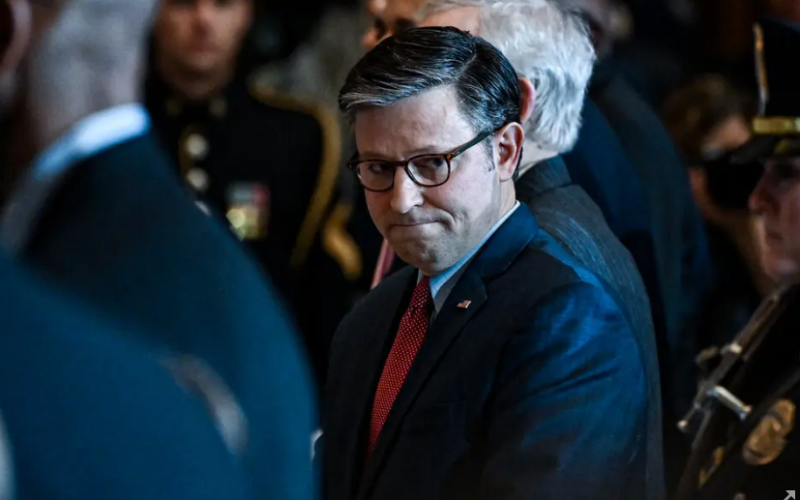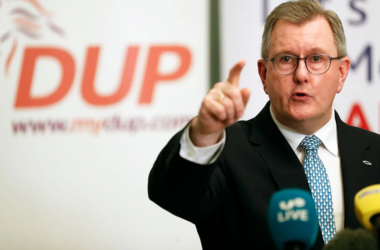In a perplexing turn of events, Republicans, despite their numerical advantage in the House, face a significant hurdle in enacting crucial legislation, relying on Democrats to secure the bulk of votes needed for essential measures. Speaker Mike Johnson, navigating a precarious situation with a slim and diminishing majority, grapples with the challenges of leading a House majority that, in practice, lacks the cohesive power to govern effectively.
The recent passage of a stopgap spending bill, orchestrated by Speaker Johnson, exemplifies the dilemma at hand. This marked the fourth occasion in the past year that a Republican speaker, contending with resistance from within his own party, turned to Democratic votes to avert potential calamities. The dynamic reveals a leadership struggle within the GOP, with Johnson presiding over a nominal House majority that, in reality, lacks the robust unity required for effective governance.
Johnson’s hold on the majority remains precarious, characterized by a delicate balancing act as he navigates the intricacies of a party divided between a restless right-wing faction and the need for Democratic support. With the narrowest of majorities and an increasingly rebellious conservative flank, Johnson finds himself in a challenging position, with his leadership undermined by internal divisions.
The recent passage of the stopgap spending bill exemplifies a well-established pattern employed by Johnson’s predecessor, Kevin McCarthy. Faced with the threat of a government shutdown, both speakers resorted to a coalition approach, relying on Democrats to shore up support and pass essential legislation. This tactic, while effective in averting immediate crises, has drawn criticism from hard-right Republicans who had hoped for a more assertive approach from their party’s leadership.
The discontent among ultraconservatives, who deposed McCarthy in favor of Johnson, stems from their belief that the party’s slim majority should have compelled the speaker into forming a coalition government with them. Instead, Johnson’s reliance on Democratic votes has fueled frustration within the GOP ranks, with Representative Bob Good of Virginia, the chairman of the Freedom Caucus, expressing disappointment in what he perceives as a failure to stand firm against Democratic influence.
However, Johnson appears to enjoy a degree of trust from the hard-line conservatives who ousted McCarthy. They express confidence in Johnson’s ability to communicate truthfully, even when faced with unfavorable realities. Johnson’s evangelical Christian background and longstanding history as an ultraconservative activist contribute to this trust, differentiating him from his predecessor in the eyes of the party’s right-wing faction.
Despite criticism and challenges, Johnson remains resolute in his approach, acknowledging the realities of a historically small House Republican majority. He underscores the need to adhere to core conservative principles while acknowledging the limitations imposed by the slim majority. Johnson views his actions, particularly regarding the recent spending bill, as a pragmatic step toward fiscal stewardship and a down payment on substantive reform.
However, Johnson’s tenure is far from smooth, marked by instances where he had to rely on Democratic votes to bring legislation to the House floor due to conservative rebels breaking with tradition. The speaker faced the necessity of employing special protocols requiring a supermajority for the passage of stopgap spending bills, highlighting the extent of the internal challenges within the GOP.
As the Republican majority grapples with internal divisions and the need for Democratic support, the efficacy of Johnson’s leadership will continue to be scrutinized. The delicate dance between maintaining party unity and securing bipartisan cooperation places Johnson at the center of a complex political dynamic, with implications for the party’s ability to govern effectively and address critical issues facing the nation.








